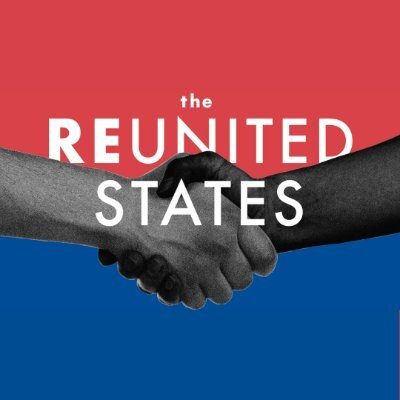On March 16, the Millennial Action Project hosted a panel discussion about the documentary The Reunited States. This event was part of MAP’s National Week of Post-Partisan Action. The film explores the state of partisanship in America and our prospects for building a politics of collaborative, post-partisan bridge-building. It follows the stories of several Americans, including MAP’s Founder and Senior advisor Steven Olikara, who are working to transform our political system by reaching across the partisan divide.
The panel, moderated by MAP’s Director of External Affairs Stacy Lewis, featured the documentary’s filmmaker Ben Rekhi, the author of the book that inspired the film Mark Gerzon, former independent candidate for Senate Greg Orman, activist Susan Bro, and Olikara.
Each panelist introduced themselves and outlined their motivation for getting involved in both the film and the political bridge-building movement as a whole. Ben was inspired to create The Reunited States after seeing Bro, the mother of activist Heather Heyer, speak about the need to avoid racial and political violence by having difficult conversations. Bro explained how her daughter’s murder during the Charlottesville riot motivated her to carry on Heather’s antiracism activism. Though personal tragedy launched her journey, she expressed the need to focus on the systems and attitudes that continue to create racial conflict in America.
Steven described MAP’s founding in 2013, as the Millennial generation was just beginning to enter positions of governmental leadership. With polarization on the rise, he saw an opportunity to replace our “culture of contempt” in politics with “compassionate bridge-building leadership” animated by a generational political identity among young people.
Orman described his first steps into politics as an independent and the powerful pressure to join a major party. Instead, he founded the Common Sense Coalition, which worked to elect independents to the U.S. Senate in order to break toxic partisanship. In 2014 he ran for Senate in Kansas, losing a close race only on the back of an “unprecedented Republican rescue effort.” He is committed to the idea that our political system needs a disruptive third force that will push us past partisan hostility and toward problem-solving.
The panel then transitioned to a Q&A with the panel’s audience. In response to questions about ranked choice voting, Orman described how our current voting system largely excludes third-party candidates from the political system. He explained how the different incentive structure of ranked choice voting allows third party candidates to be competitive in elections, as well as gives citizens the opportunity to vote based on their actual preferences rather than having to choose between two potentially undesirable options. Bro and Olikara echoed that third party candidates face funding challenges, pointing out the particular disadvantage that young people and marginalized community members face in our current electoral system.
Gerzon responded to a question about how to reform systems that affect Americans unequally by promoting a generational outlook. He observed that, in addition to systems of racial oppression, there is a system of generational exploitation at work whereby older generations make political and financial decisions that limit future generations’ economic and political choices. In support for MAP’s mission to activate younger generations, he said, “there’s important organizing to be done amongst those who are under 40… We may be liberal or conservative or independents, but we have some common interests, which is to regain control over the resources that are actually ours.”


